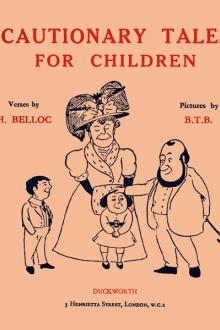Wieland; Or, The Transformation: An American Tale, Charles Brockden Brown [reading diary .txt] 📗

- Author: Charles Brockden Brown
Book online «Wieland; Or, The Transformation: An American Tale, Charles Brockden Brown [reading diary .txt] 📗». Author Charles Brockden Brown
No sooner was he informed of my consent, than he told me I must make immediate preparation to embark, as the ship in which he had engaged a passage would be ready to depart in three days. This expedition was unexpected. There was an impatience in his manner when he urged the necessity of dispatch that excited my surprize. When I questioned him as to the cause of this haste, he generally stated reasons which, at that time, I could not deny to be plausible; but which, on the review, appeared insufficient. I suspected that the true motives were concealed, and believed that these motives had some connection with my brother's destiny.
I now recollected that the information respecting Wieland which had, from time to time, been imparted to me, was always accompanied with airs of reserve and mysteriousness. What had appeared sufficiently explicit at the time it was uttered, I now remembered to have been faltering and ambiguous. I was resolved to remove my doubts, by visiting the unfortunate man in his dungeon.
Heretofore the idea of this visit had occurred to me; but the horrors of his dwelling-place, his wild yet placid physiognomy, his neglected locks, the fetters which constrained his limbs, terrible as they were in description, how could I endure to behold!
Now, however, that I was preparing to take an everlasting farewell of my country, now that an ocean was henceforth to separate me from him, how could I part without an interview? I would examine his situation with my own eyes. I would know whether the representations which had been made to me were true. Perhaps the sight of the sister whom he was wont to love with a passion more than fraternal, might have an auspicious influence on his malady.
Having formed this resolution, I waited to communicate it to Mr. Cambridge. I was aware that, without his concurrence, I could not hope to carry it into execution, and could discover no objection to which it was liable. If I had not been deceived as to his condition, no inconvenience could arise from this proceeding. His consent, therefore, would be the test of his sincerity.
I seized this opportunity to state my wishes on this head. My suspicions were confirmed by the manner in which my request affected him. After some pause, in which his countenance betrayed every mark of perplexity, he said to me, "Why would you pay this visit? What useful purpose can it serve?"
"We are preparing," said I, "to leave the country forever: What kind of being should I be to leave behind me a brother in calamity without even a parting interview? Indulge me for three minutes in the sight of him. My heart will be much easier after I have looked at him, and shed a few tears in his presence."
"I believe otherwise. The sight of him would only augment your distress, without contributing, in any degree, to his benefit."
"I know not that," returned I. "Surely the sympathy of his sister, proofs that her tenderness is as lively as ever, must be a source of satisfaction to him. At present he must regard all mankind as his enemies and calumniators. His sister he, probably, conceives to partake in the general infatuation, and to join in the cry of abhorrence that is raised against him. To be undeceived in this respect, to be assured that, however I may impute his conduct to delusion, I still retain all my former affection for his person, and veneration for the purity of his motives, cannot but afford him pleasure. When he hears that I have left the country, without even the ceremonious attention of a visit, what will he think of me? His magnanimity may hinder him from repining, but he will surely consider my behaviour as savage and unfeeling. Indeed, dear Sir, I must pay this visit. To embark with you without paying it, will be impossible. It may be of no service to him, but will enable me to acquit myself of what I cannot but esteem a duty. Besides," continued I, "if it be a mere fit of insanity that has seized him, may not my presence chance to have a salutary influence? The mere sight of me, it is not impossible, may rectify his perceptions."
"Ay," said my uncle, with some eagerness; "it is by no means impossible that your interview may have that effect; and for that reason, beyond all others, would I dissuade you from it."
I expressed my surprize at this declaration. "Is it not to be desired that an error so fatal as this should be rectified?"
"I wonder at your question. Reflect on the consequences of this error. Has he not destroyed the wife whom he loved, the children whom he idolized? What is it that enables him to bear the remembrance, but the belief that he acted as his duty enjoined? Would you rashly bereave him of this belief? Would you restore him to himself, and convince him that he was instigated to this dreadful outrage by a perversion of his organs, or a delusion from hell?
"Now his visions are joyous and elate. He conceives himself to have reached a loftier degree of virtue, than any other human being. The merit of his sacrifice is only enhanced in the eyes of superior beings, by the detestation that pursues him here, and the sufferings to which he is condemned. The belief that even his sister has deserted him, and gone over to his enemies, adds to his sublimity of feelings, and his confidence in divine approbation and future recompense.
"Let him be undeceived in this respect, and what floods of despair and of horror will overwhelm him! Instead of glowing approbation and serene hope, will he not hate and torture himself? Self-violence, or a phrenzy far more savage and destructive than this, may be expected to succeed. I beseech you, therefore, to relinquish this scheme. If you calmly reflect upon it, you will discover that your duty lies in carefully shunning him."
Mr. Cambridge's reasonings suggested views to my understanding, that had not hitherto occurred. I could not but admit their validity, but they shewed, in a new light, the depth of that misfortune in which my brother was plunged. I was silent and irresolute.
Presently, I considered, that whether Wieland was a maniac, a faithful servant of his God, the victim of hellish illusions, or the dupe of human imposture, was by no means certain. In this state of my mind it became me to be silent during the visit that I projected. This visit should be brief: I should be satisfied merely to snatch a look at him. Admitting that a change in his opinions were not to be desired, there was no danger from the conduct which I should pursue, that this change should be wrought.
But I could not conquer my uncle's aversion to this scheme. Yet I persisted, and he found that to make me voluntarily relinquish it, it was necessary to be more explicit than he had hitherto been. He took both my hands, and anxiously examining my countenance as he spoke, "Clara," said he, "this visit must not be paid. We must hasten with the utmost expedition from this shore. It is folly to conceal the truth from you, and, since it is only by disclosing the truth that you can be prevailed upon to





Comments (0)